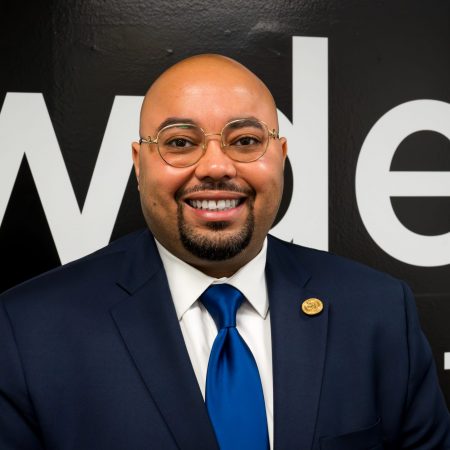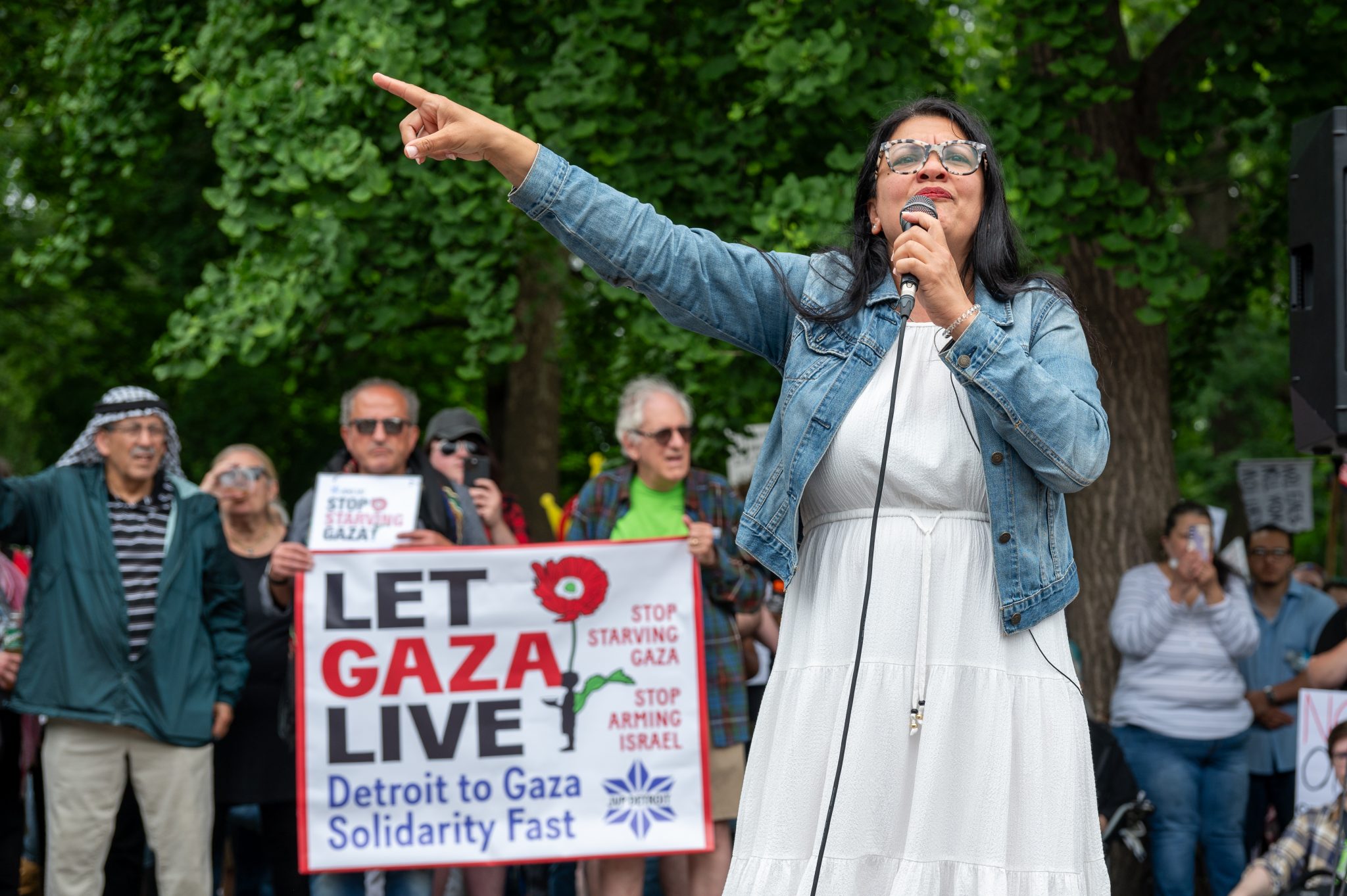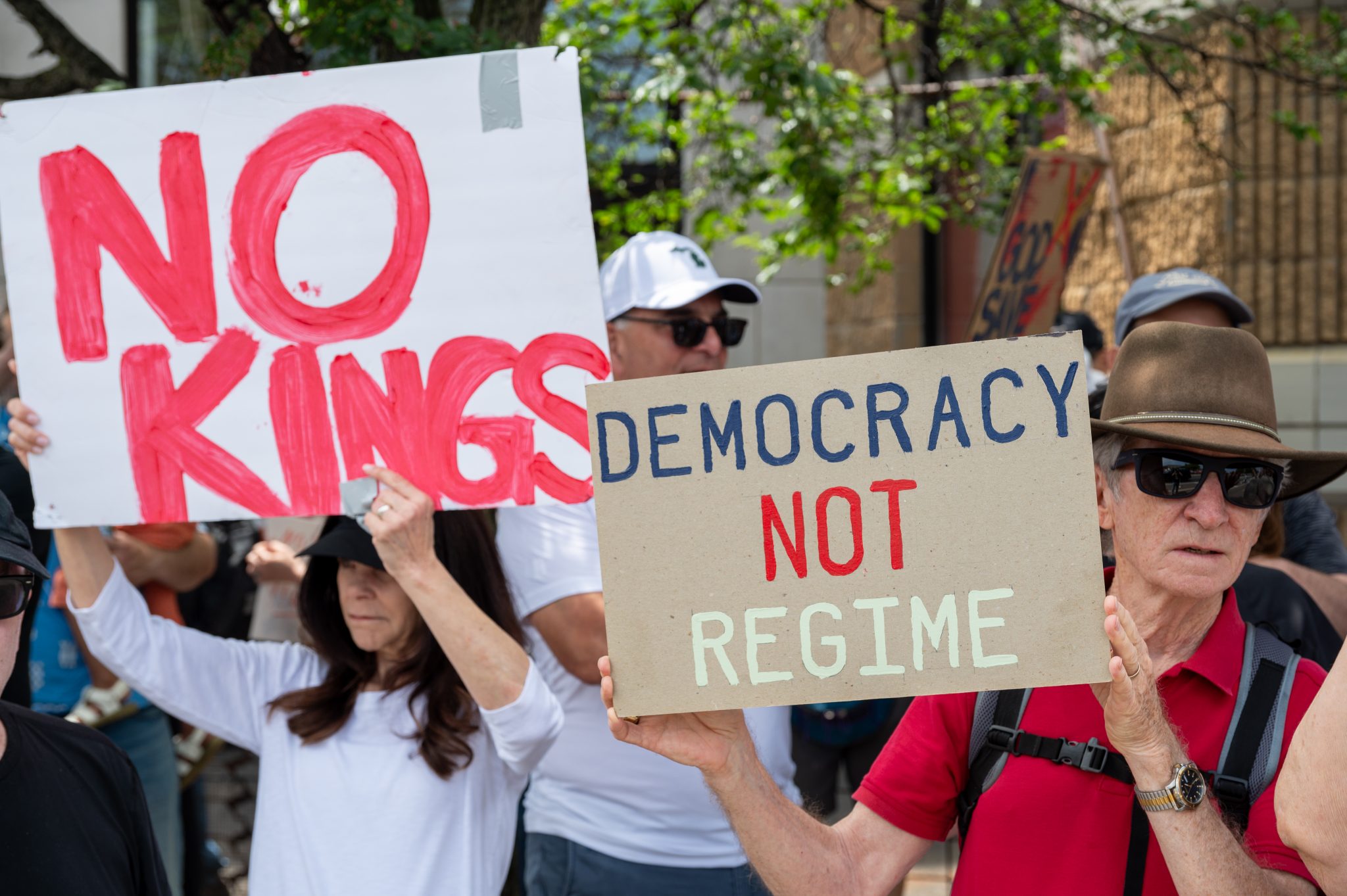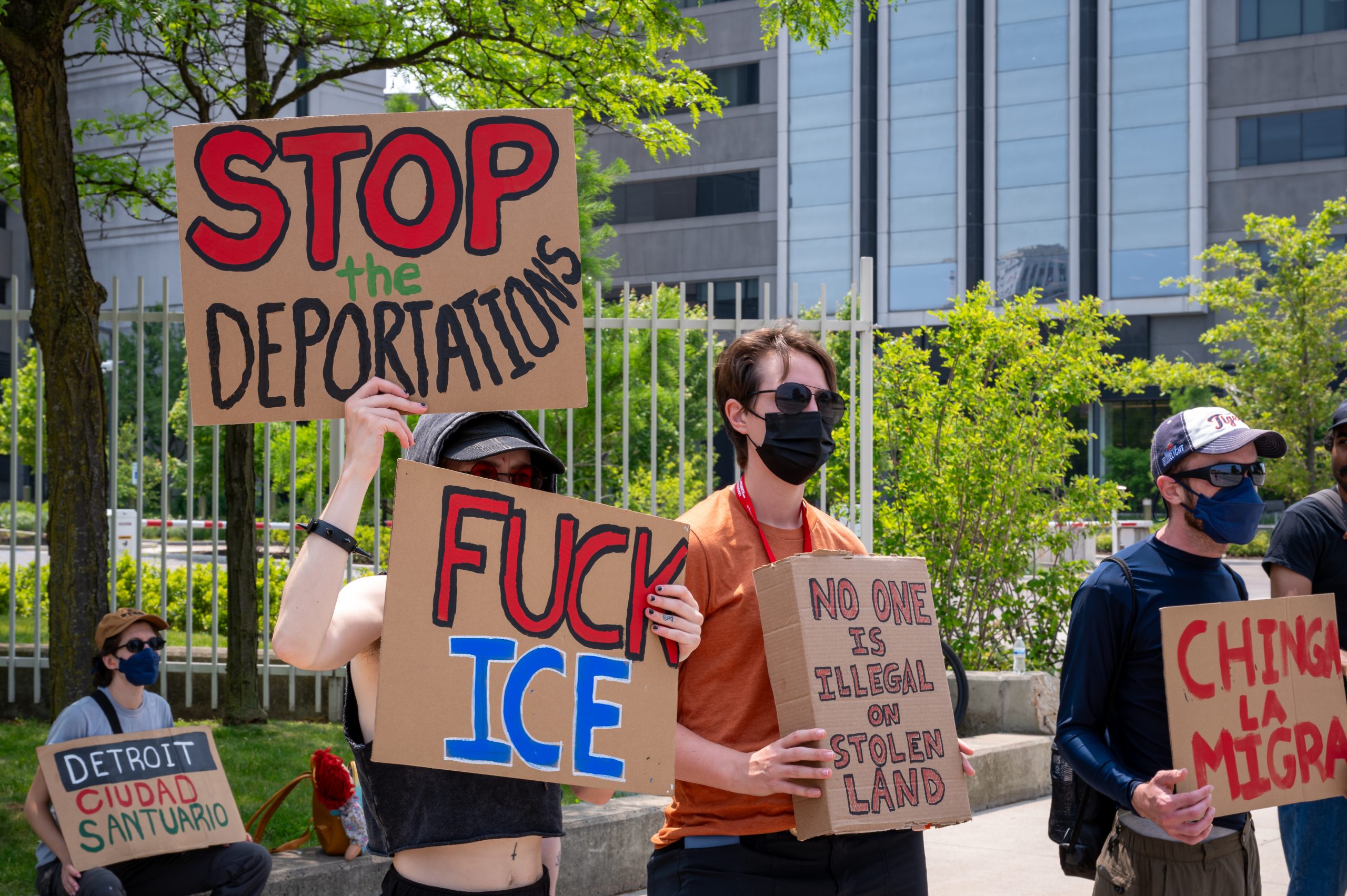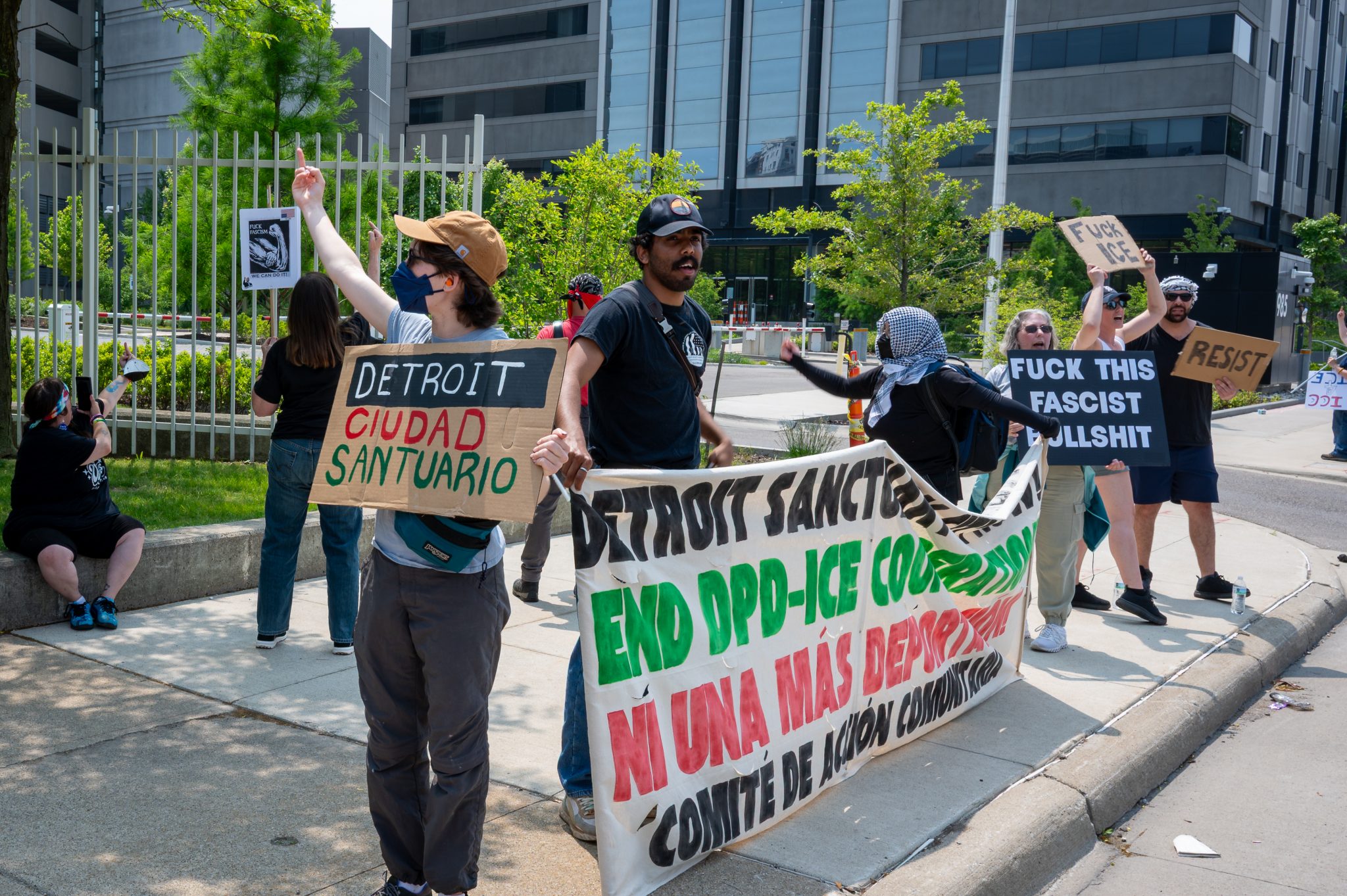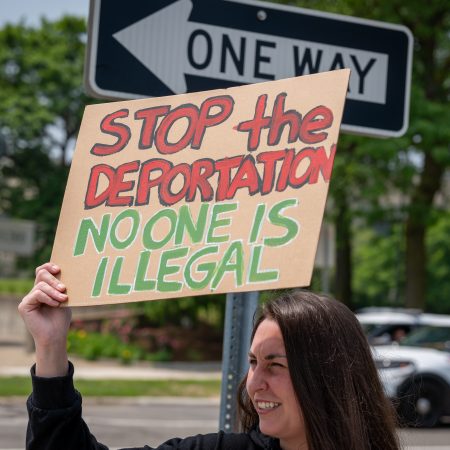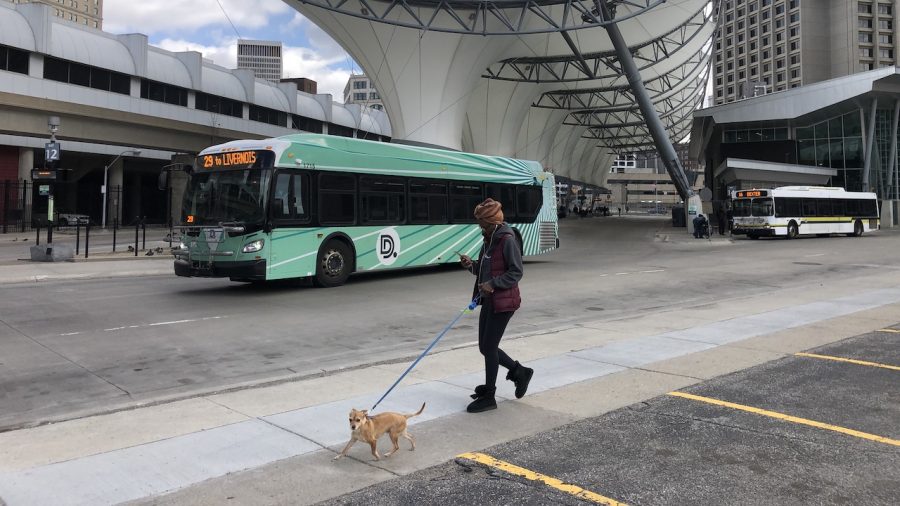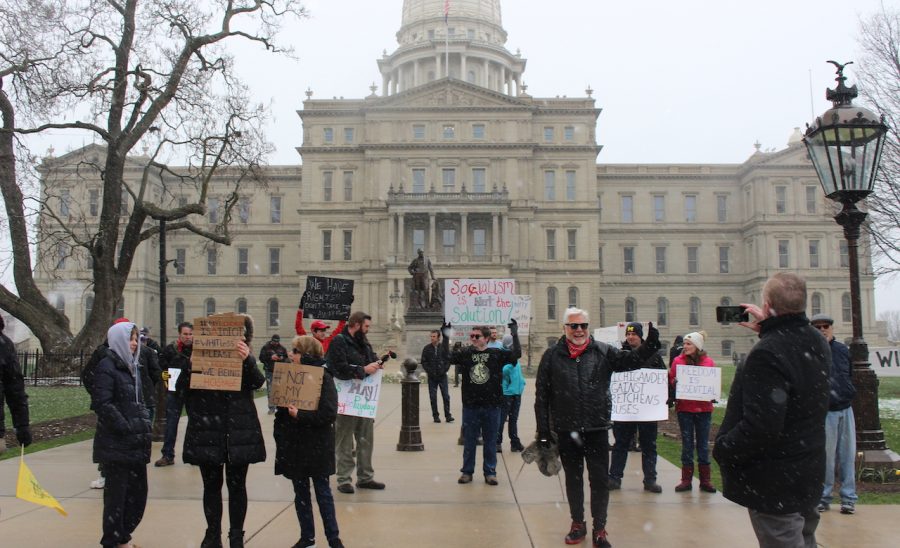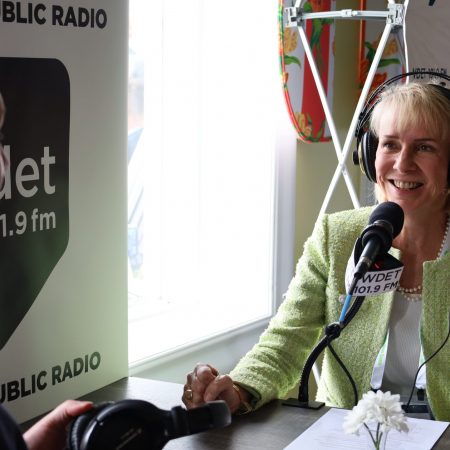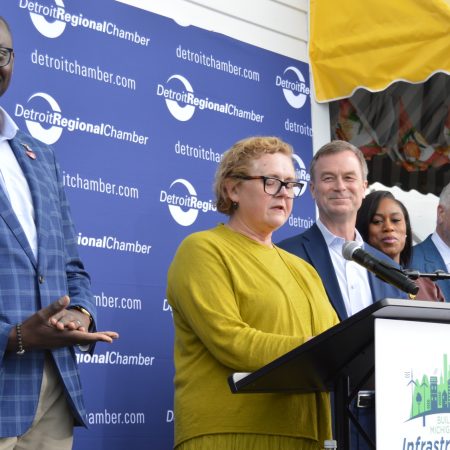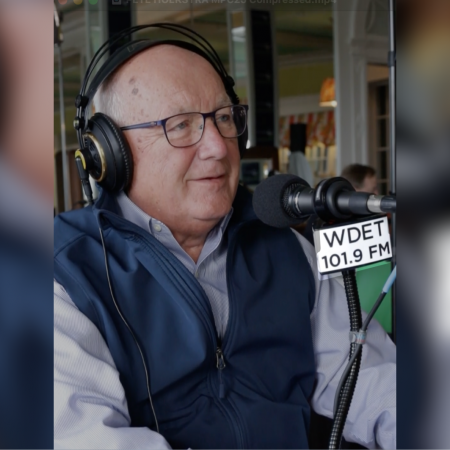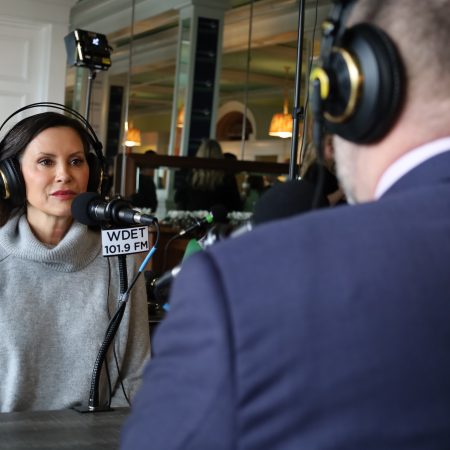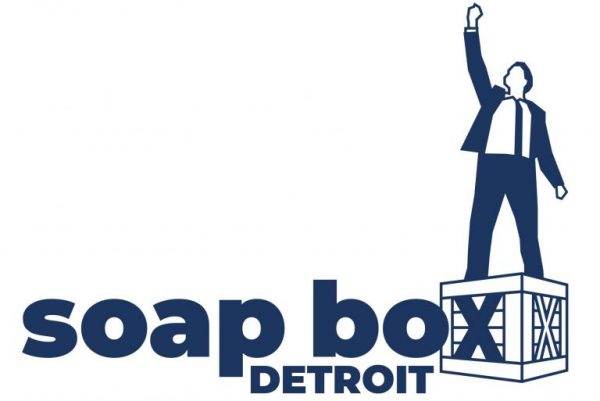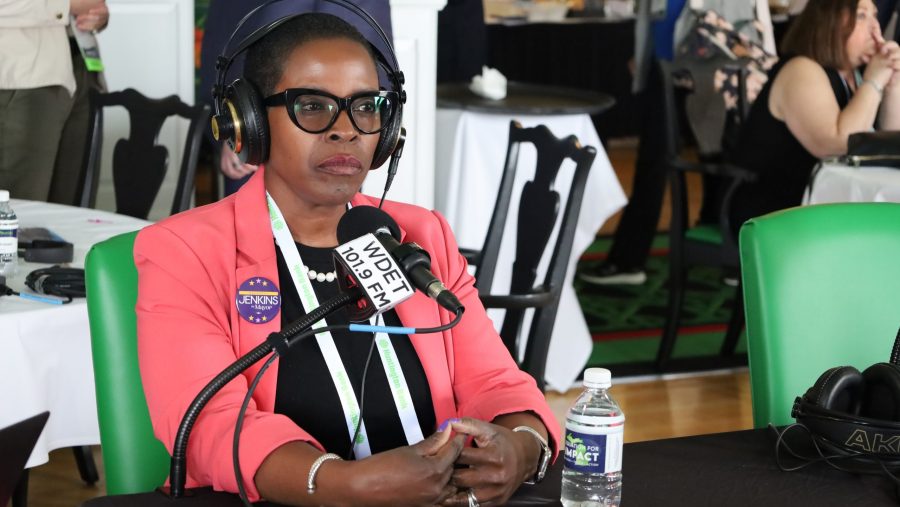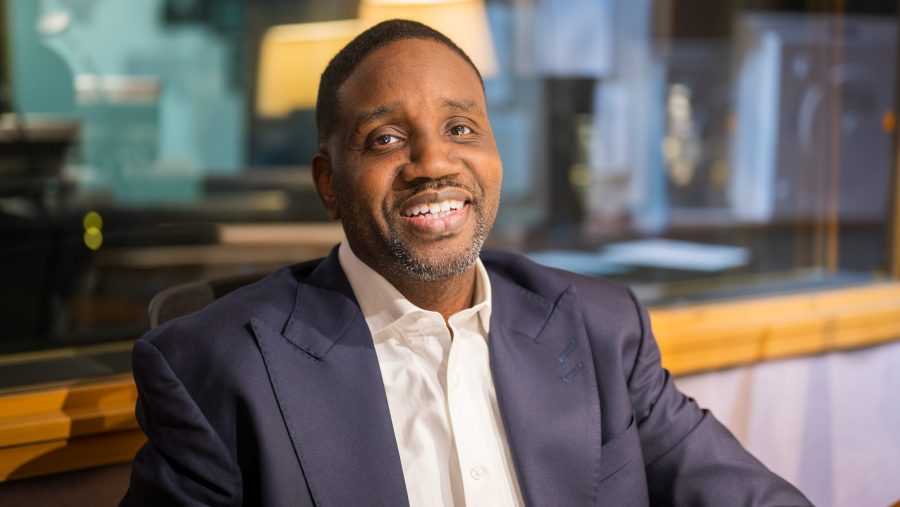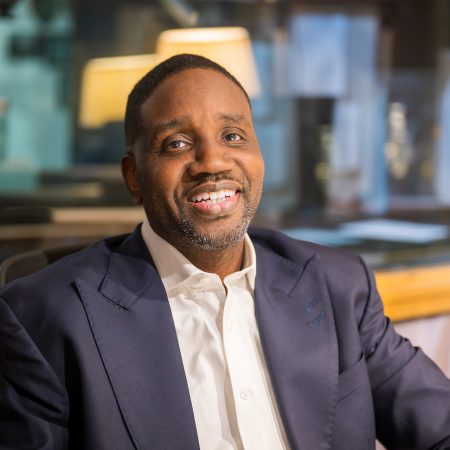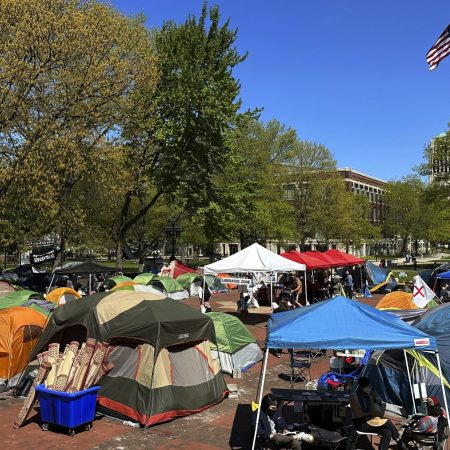Durhal releases economic plan in bid for Detroit mayor
We are less than two months away from the August primary in the race for Detroit Mayor.
The top two vote getters will move on to the general election in November. The top four candidates, as decided by polling, participated in a debate here at Wayne State University on Monday that led to this spicy moment with former Detroit City Council President Saunteel Jenkins calling out the other people on stage — former police chief James Craig, pastor Solomon Kinloch and current City Council President Mary Sheffield.
“More guns in schools, locking up our kids — Craig is your guy. If you want a part-time mayor who is working two full-time jobs, Kinloch is ready,” Jenkins said. “If you want a mayor who shows up on Instagram but doesn’t show up for meetings, then follow Mary.”
Not on stage and not taking any of those shots was Detroit Councilman and mayoral candidate Fred Durhal III. However, he did take the time to release a comprehensive economic strategy — something that no other candidate has done.
Durhal joined WDET’s All Things Considered – Detroit on Wednesday to talk about the motivation behind his economic platform and his reaction to Monday’s debate.
Listen: Detroit mayoral candidate Fred Durhal on his economic strategy
The following interview has been edited for clarity and length.
Russ McNamara, WDET News: First off, you weren’t at the debate; I want your thoughts on the shots fired there by Saunteel Jenkins.
Fred Durhal, Detroit City Councilmember and mayoral candidate: Well, you know, sometimes shots get fired.If they hit you, they hit you. My grandmother had an old saying that “if you throw a rock in a pack of wolves, the first one that cries is the first one that got hit,’ So, you know, the base tend to get a little bit punchy, but, I think folks want to hear comprehensive plans when it comes to debates.
RM: Moving on to your plan — big bold letters, right at the top: “An equitable tax strategy.” Where is the inequity right now?
FD: Well, the inequity is really what homeowners pay as opposed to folks who speculate on land or folks who are contributors to blight here in the city of Detroit. I’ll give you an example — we have a lot of underdeveloped land here in the city of Detroit; a lot of the land that may be just flat surface parking lots that during the Tigers game or the Lions game, and — per year — generate over $2-$3 million per year, but pay just a little over $10,000 in property taxes, while the average homeowner is paying that or more in property taxes. So the equity is not there.
We want to make sure that we are charging folks more who are not paying their fair share, and put more money back into the pockets of the residents who are paying their property taxes.
RM: Now, what about those properties that exist, but the homes are still a bit run down?
FD: So if there are properties that exist and the homes are run down — if they’re not owner occupied — we are going to focus on creating a blight tax here in the city of Detroit. And again, this is not for owner occupied homes or structures. We’re targeting folks who are speculators, who come into neighborhoods and buy 10 to 15 properties, sit on those properties, don’t provide any upgrades to those properties; They’re contributors to blight here in the city of Detroit, and then neighbors are stuck with blight in their neighborhood. So we’re going to be aggressive. We’re going to introduce a blight tax and charge 25 times with the property tax millage is.
RM: Now the current mayor, Mike Duggan, tried to institute some taxes and kind of raise the property taxes on speculators — people who are leaving the land vacant — by going through the state Legislature. How close does your plan come to the one that Duggan tried and failed to get done?
FD: I think what’s important to realize is, when you talk about property tax reform in any manner, it’s going to take passage from the state Legislature — anything that is of substance. So when we compare our plan to his plan, there are similarities, but again, we’re going to be very aggressive on lowering the operating mills about 19.5 mills. Additionally, you heard about the implementation of that blight tax, which is going to charge 25 times what the property millage rate is, for folks who are contributors to blight. And we’re very confident, due to the relationships that we’ve had in the state Legislature — being a former member of the Michigan Legislature and in leadership — that we’ll be able to get our plan across the finish line.
RM: What makes you think that you can get it done when a completely democratically-controlled state Legislature, with a Democratic governor, weren’t able to get it done?
FD: They didn’t even take a vote on it. And I think for me, having those relationships are going to be important. And I think at the time from the conversation with some legislators, they did not feel it was aggressive enough, and some folks needed to see the benefit that it would bring to their community — not just the city of Detroit. So we’ve already started to have those discussions with legislators now about how this would affect their communities. But again, the components that we’re adding, such as a blight tax, is something that’ll be beneficial across the entire state when we talk about getting aggressive.
RM: The people who own the parking lots, the people who own the buildings in downtown Detroit, those are some rich folks who wield a considerable amount of power. I’m just wondering how you expected to get that done and have it go over well?
FD: Again, that’s relationships, and that’s coalition building. You have to be able to get into the door to talk to some of the heads of industry, as well as have a great pulse in the community. And I think we have that, and we have the ability to bridge that gap. And what we’re saying is we’re not trying to penalize folks, but we’re trying to incentivize development here in the city of Detroit. We’re trying to incentivize folks not to be contributors to blight here in the city. And as we look at some of that underdeveloped land, and we start to see that land become developed, we solve a couple problems. One, we have the ability to create new streams of revenue that we can generate so we can put back into the neighborhoods and continue to grow our city. But the second thing that you’ll see is creating walkable areas and neighborhoods.
Let’s say we take a flat lot surface and it gets developed into a huge parking structure. We know parking is starting to become a big issue here in the city of Detroit — and I’m just using that as an example of how we can solve some of these problems and find productive uses for the land that we have.
“I’ve said it throughout this entire campaign, I want to cut more red tape so we can cut more red ribbons, and that is going to be my focus.”
–Detroit City Councilmember and mayoral candidate Fred Durhal III
RM: There’s been a push both at the state level and local level to start cutting some red tape. How do you do that effectively in the city?
FD: I’ve said it throughout this entire campaign, I want to cut more red tape so we can cut more red ribbons, and that is going to be my focus. And we’ll do that by focusing on and streamlining processes here in the city of Detroit. We want a one-stop permitting process that develops a level of predictability that when you want to come do business here in the city of Detroit, you don’t have to go through over 80 steps to get your business started here, no matter if it’s a restaurant, whether it’s retail or whatever the case may be. And then after that, even as we talk about development, we want to create a one-stop inspection process so you don’t have to wait two, three months at a time per inspector, which slows down your process, and slows down the progress of your development, making it more expensive.
We want to make it easier to do business here, we want to be more efficient, and we want to foster an environment where everyone wants to come here and do business and develop in the city.
RM: What’s the one thing you want Detroiters to know about
you?
FD: The one thing I want Detroiters to know about us, even if they didn’t get an opportunity to see us in this past debate, is that we are a very serious candidate, and the most experienced candidate in this race. We’re the only candidate that can say that we served on the state level as well as the city level; we have delivered time and time again, and as the mayor of the city of Detroit, we will continue to develop because we’ll utilize that experience to get comprehensive property tax relief across Lansing and bring home the dollars here for residents in the city of Detroit.
Read more:
- Breaking down Detroit’s mayoral race
- James Craig’s mayoral campaign blends law enforcement and conservative politics
- Saunteel Jenkins on what sets her apart in Detroit’s mayoral race
- Mayoral candidate Joel Haashiim fights for Detroit grassroots power
- What Detroit’s Latino community wants from the next mayor
Trusted, accurate, up-to-date.
WDET strives to make our journalism accessible to everyone. As a public media institution, we maintain our journalistic integrity through independent support from readers like you. If you value WDET as your source of news, music and conversation, please make a gift today.Donate today »
The post Durhal releases economic plan in bid for Detroit mayor appeared first on WDET 101.9 FM.
